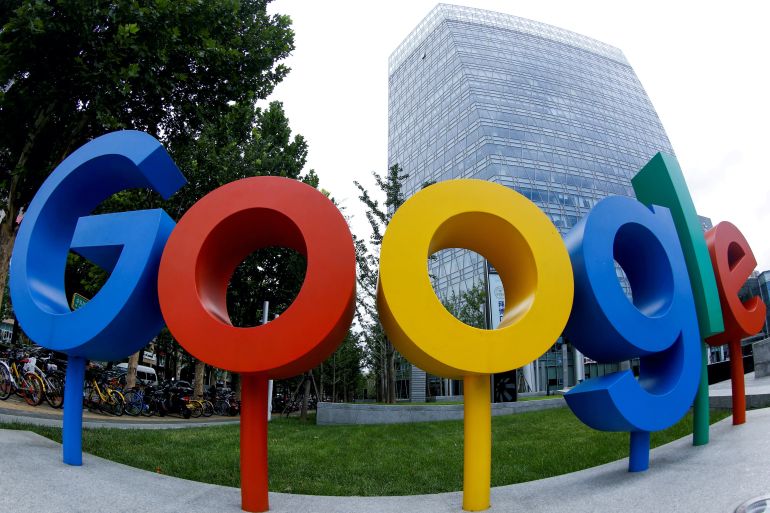Russian regulator blocks Google News over “inauthentic” war info
Ban comes after Google said it would not help platforms sell ads alongside content that condone the conflict in Ukraine.

Russia’s communications regulator has blocked Google News, accusing the news aggregator service of spreading false information about Moscow’s war in Ukraine, Russian news agency Interfax said on Wednesday.
“We’ve confirmed that some people are having difficulty accessing the Google News app and website in Russia and that this is not due to any technical issues on our end,” Google said in a statement.
Keep reading
list of 4 itemsRussia among four candidates to host Euro 2028 and 2032
Can Somalia avert famine?
US determines Russia committed war crimes in Ukraine: Blinken
“We’ve worked hard to keep information services like News accessible to people in Russia for as long as possible.”
The move comes after Google said it would not help websites, apps, and YouTube channels sell ads alongside content that deemed to exploit, dismiss or condone the conflict in Ukraine. The tech giant also earlier this month announced it would stop selling all online ads in Russia.
Interfax said Roskomnadzor, the Russian regulator, had acted on a request from the office of Russia’s prosecutor general.
“The American online news resource in question provided access to numerous publications and materials containing inauthentic and publicly important information about the course of the special military operation on the territory of Ukraine,” Interfax quoted the regulator as saying.
Belinda Barnet, a senior lecturer at Swinburne University of Technology who specialises in digital media and technology, told Al Jazeera the move is consistent with Russian President Vladimir Putin’s desire to “tightly control the narrative reaching Russian citizens”.
“He hasn’t been terribly successful at controlling the global narrative – due in part to the actions of platforms like Google blocking Kremlin-aligned outlets – but does still have a stranglehold on his own domestic media outlets,” Barnet said. “So digital media platforms like Google are a threat to that control. This is no surprise.”
‘Extremist activities’
The Russian regulator’s announcement comes after it last week demanded Google stop allowing the spread of threats on YouTube that “are terrorist in nature and threaten the life and health of Russian citizens”.
Rob Nicholls, an associate professor in regulation and governance at the University of New South Wales’ Business School, told Al Jazeera the ban on Google News reflects the significant influence and reach of the service.
“Google’s prohibition on content that exploits, dismisses or condones the conflict in Ukraine would have been an issue for Moscow. However, blocking access is a significant step,” Nicholls said. “It’s likely that similar geoblocking will be extended to other large networks as Moscow tries to control the narrative of the conflict. It’s hard to portray the conflict as a “special operation” when Google News provides access to NATO’s Russian casualty estimates.”
Under a law signed by Putin earlier this month, spreading “fake news” about the Russian military is punishable by up to 15 years in jail.
On Monday, a Russian court banned Facebook and Instagram in the country after finding them responsible for “extremist activities”.
The ruling came after parent company Meta said earlier this month that it would relax its hate speech policies to allow users in Ukraine to express violent sentiments towards Russian leaders and soldiers in the context of the ongoing war.
Nick Clegg, global affairs president at Meta, later announced the policy would be narrowed to prohibit calls for the death of a head of state and to clarify it should not be interpreted as “condoning violence against Russians in general”.